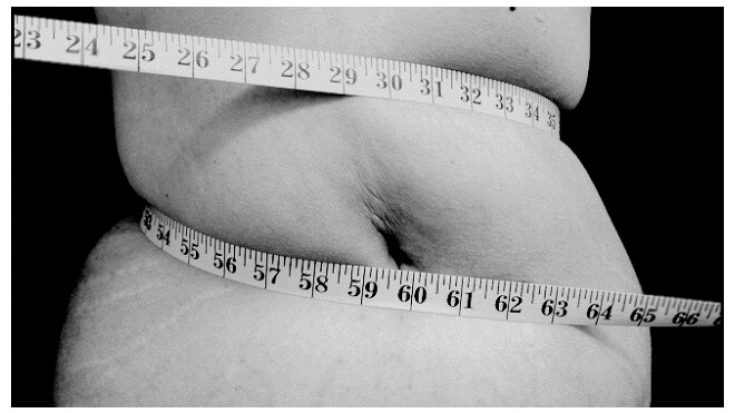The use of botulinum toxin has long been firmly established in aesthetic medicine. The number of patients receiving regular injections of toxin to eliminate wrinkles is steadily increasing as people learn how simple, fast, relatively painless and effective the treatment can be.
Over the years, a large number of clinical trials have been conducted regarding various applications of botulinum toxin. This allowed us to collect a fairly large amount of information about the use of botulinum toxin in different areas of the body, and not just on the face.
On estet-portal.com read how you can also treat obesity with botulinum toxin.
- History of the use of botulinum toxin for weight loss
- Botulinum toxin for the treatment of obesity: research results
- What is the mechanism of action of botulinum toxin on the stomach
- Botulinum toxin injection procedure for the treatment of obesity: effects, result
History of the use of botulinum toxin for weight loss
Obesity is a major public health problem in many countries. The idea that treatment with botulinum toxin could benefit obese patients was first proposed in 1995 by Italian researchers from Rome.

Subscribe to our channel in Telegram!
Their first publication described a very small study in rats that found that 20 units of botulinum toxin distributed over six sites in the distal stomach produced weight loss over a period of about one month .
Botulinum toxin for the treatment of obesity: research results
Research of interest to physicians and patients alike concerns the use of botulinum toxin for weight loss in obese patients. In 2014, a British national newspaper reported on the work being done at the hospital Olav in Trondheim, Norway, which showed that botulinum toxin can positively affect obesity.
Read also: How obesity affects the development of polycystic ovary syndrome
The article reported that endoscope-guided injections of the toxin into the stomach wall slowed down the passage of food through the stomach, making patients feel full longer.
Earlier this year, the same Norwegian team submitted additional data, now with information on repeat treatments with botulinum toxin. About 70% of 20 patients reportedly lost 17% of their weight after one year.
However, there are several problems with these studies:
- not all animals responded to therapy;
- calculating the human dose based on animal studies is difficult because some species are more or less sensitive to the toxin;
- The studies were carried out in a short time, so it is impossible to talk about the long-term effect.
Research is still ongoing. The idea of using botulinum toxin for weight loss is quite controversial due to the lack of data, the high cost of the procedure, and its short-term effect.
What is the mechanism of the toxin's effect on the stomach
There are several possible actions of botulinum toxin that could explain the slimming effect if the drug is administered intragastrically.
Botulinum toxin effectively acts on the neuromuscular fibers of the stomach, blocking the release of the neurotransmitter acetylcholine, which carries out neuromuscular transmission of impulses.
Thus the motility of the stomach reduces and the movement of food to the intestines. Thanks to this, a person feels satiety and satiety longer, as a result of which he reduces the frequency and volume of meals.
Read also: Diabetes and obesity: a new program will help to cope with this problem
Botulinum toxin also affects the activity of the vagus nerve. This nerve controls the unconscious activities of the body, such as regulating the heart rate and digesting food. Therefore, exposure of the vagus nerve to the toxin could potentially reduce food intake.

In addition, botulinum toxin in the fundus of the stomach blocks the release of the hunger hormone -ghrelin. Ghrelin increases the pleasure of eating by stimulating the release of dopamine. Before eating, its level rises, after eating – decreases, we feel full. When injecting botulinum toxin into the stomach, this can lead to a decrease in hunger.
There is also evidence of a direct lipolytic effect of the toxin, which occurs as a result of the suppression of the innervation of adipose tissue by the toxin.
Botulinum toxin injection procedure for obesity treatment: effects, result
Botulinum toxin type A is injected into the walls of the stomach using an endoscope during gastroscopy. Appetite will gradually decrease 3 days after the procedure, and the maximum effect should be expected after a week. According to studies, the result is not long-term, and lasts an average of 3-6 months. After the procedure, the patient can return to their normal lifestyle. The use of botulinum toxin for the treatment of obesity is not recommended for people with diagnoses such as gastritis, gastric ulcer, duodenal ulcer.
Read also: Do you know all the contraindications to botulinum toxin
As you can see, the use of botulinum toxin for weight loss – quite promising, but controversial method for the treatment of obesity, with its own disadvantages and advantages. Several injections of the drug can cause weight loss, and a large number can even lead to the opposite effect. In this regard, research is ongoing to avoid all sorts of side effects, complications and long-term consequences.
Subscribe to our YouTube-channel!







Add a comment